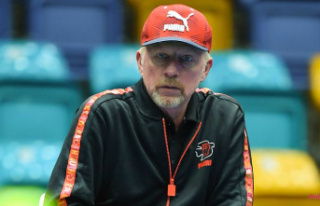Florian Nielsen is the master of artificial intelligence at Miele. He ensures that the products not only look smart, but are smart too. It's not always easy, because manufacturers and customers often talk past each other, for example when it comes to eco-programs.
Nowadays, anyone who buys a new oven, stove or washing machine usually gets artificial intelligence (AI) right away. No manufacturer can afford not to label its products with the attribute "smart". According to a study by the consulting firm McKinsey, 3.3 million people in Germany owned smart home appliances last year.
A trend that sounds modern, but also provides real added value - that's what the manufacturers of smart washing machines or ovens promise. Samsung, Bosch or Miele need products that really make sense. Intelligent refrigerators, which send their owner a shopping list for the supermarket to work or give an overview of the food stocks through cameras in the interior, are currently not one of them. Although they have been presented as a prime example at trade fairs for years, they have not caught on, as Florian Nielsen, AI Director at Miele, reveals in the ntv podcast "So techt Deutschland".
The data manager of the Gütersloh company sees various reasons for this. Interior cameras are easily obscured by food, he says. "And people will not adapt their behavior to operate a smart fridge." Nielsen is therefore convinced: "I currently don't see that we can bring something like this to the market without the customer having to change."
In order for Miele to deliver real benefits, Nielsen and his team depend on data. This is clearly communicated: "We say very clearly why we collect data," emphasizes Nielsen. Every customer is asked whether the data can be used anonymously. "For us it is of course essential that we do not endanger the trust of our customers."
This is also crucial if manufacturers want to bring about small changes in behavior. Because currently only a minority of Germans use Eco programs on dishwashers or washing machines. "Customers have the impression that the washing machine would then consume more energy, but this is not the case," explains Nielsen, who sees potential for improvement in communication from manufacturers such as Miele - for example through apps that show how much energy a wash cycle consumes consumed and which programs are better suited.












